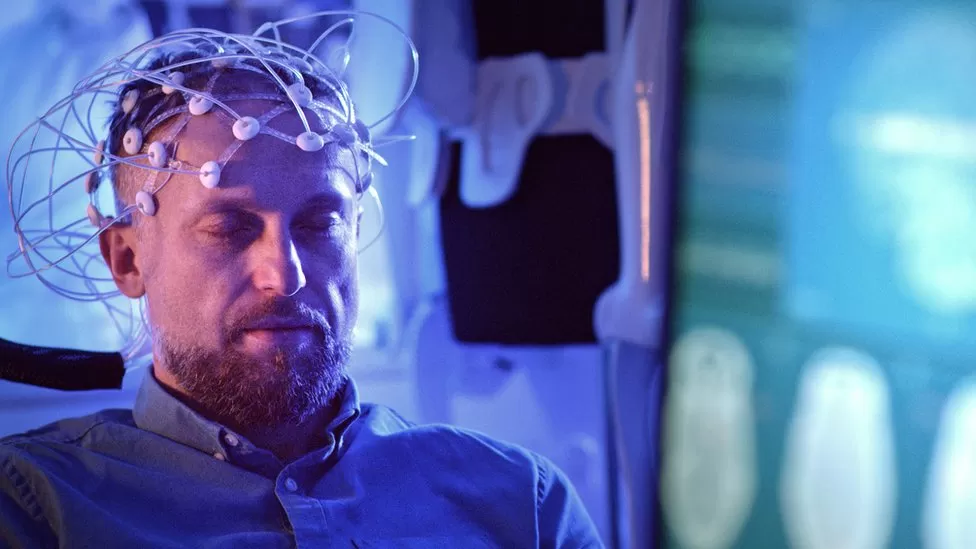AI: Warning firms may use brain data to watch workers

The data watchdog says companies may use brain-monitoring technology to monitor and hire workers in the future.
According to the Information Commissioner’s Office, “neurotech” can lead to discrimination if not developed and used properly.
The Neurotechnology report is the first ICO report to cover “neurodata”, data from the brain and nervous system.
A number of hypothetical future uses of neurotech are explored in the report, including workplace monitoring.
A number of companies, including Elon Musk’s Neuralink, are exploring new ways to connect computers to human brains.
ICO’s Stephen Almond told that based on all the indicators, we’re seeing rapid growth in investments and patents in this area.
A lot of neurotech is already being used in the healthcare sector, where there are strict regulations, according to the ICO.
Gert-Jan Oskam, paralyzed in a cycling accident 12 years ago, was able to walk again after receiving electronic implants in his brain.
Commercial interest in the technology is growing as well.
The implantable brain-computer interface developed by Neuralink has won permission for human trials and is now worth $4 billion (£4 billion) despite the fact that it is some way from becoming a commercial product.
Research projects are now able to decipher sentences and words using only brain scans, and artificial intelligence is opening up new possibilities. In the long run, this might help patients who suffer from locked-in syndrome, in which the patient is conscious but unable to move or speak.
The report, however, uses hypothetical examples to explore the issues raised by neurodata by looking at future technologies.
It is anticipated that in four to five years, the workplace will routinely use neurotechnology for safety, productivity and recruitment as employee tracking expands.
It is possible to measure the attention and focus of an employee in a high-risk environment by using safety equipment or helmets.
According to Mr Almond, bosses might use it to assess how employees react to workplace stress.
In the long run, wearable brain monitoring devices may be used in education to measure students’ concentration levels and stress levels.
The term “neuromarketing” has already been used in small, controlled research settings – with consumer responses to products involving medical devices that measure brain activity. However, there is considerable disagreement about its effectiveness.
The ICO says that in the future, non-invasive devices will be able to read consumer responses at home to tailor consumer preferences.
As an admittedly far-fetched example, the report suggests that headphones equipped with neurotechnology might be used to target advertising in the future.
Games and entertainment are also growing – some games and drones can already be controlled by brain-reading devices.
However, the ICO is concerned that the technology could cause discrimination if it is not carefully developed.
